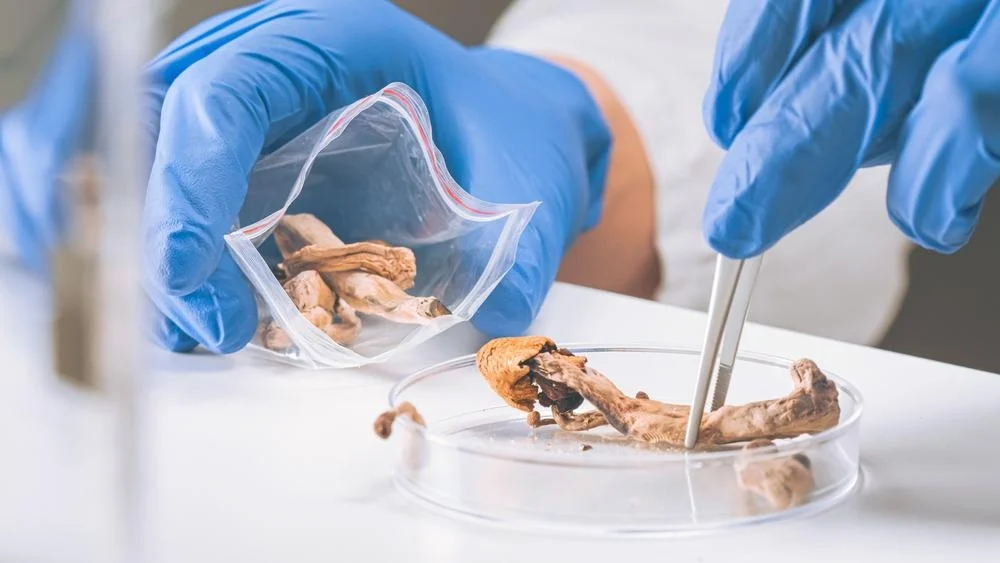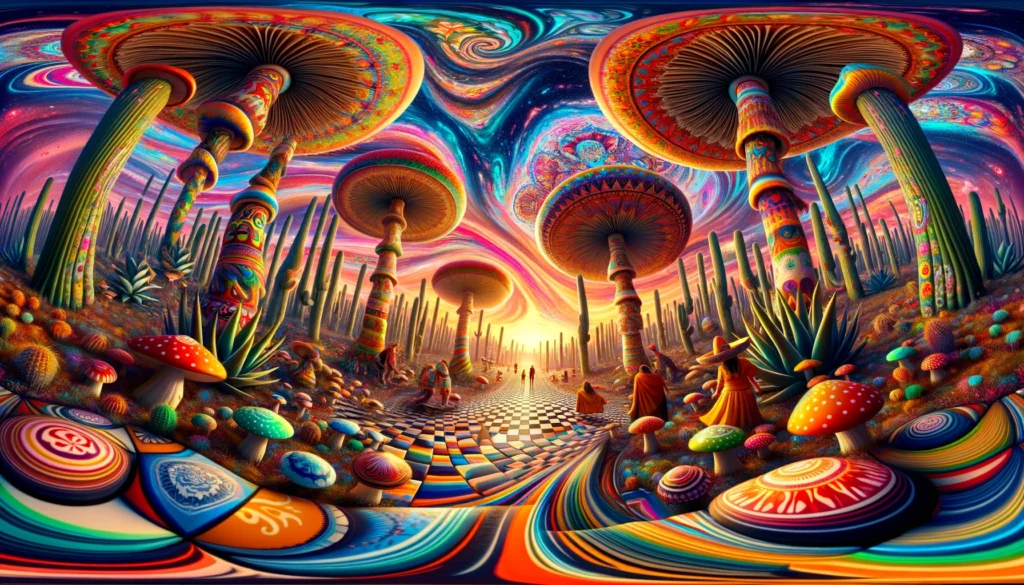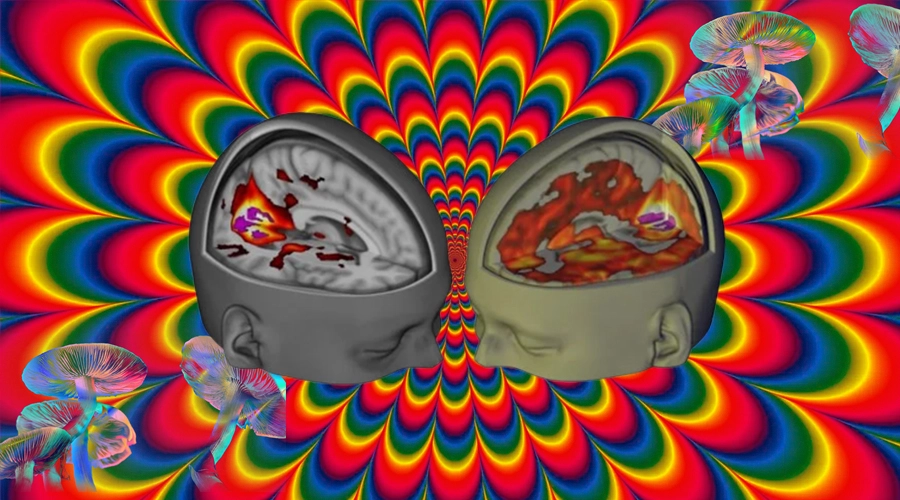In recent years, research on psychedelics has made a remarkable comeback, bringing them to the fore as a new class of medicines for mental health. Scientists’ forefront discoveries are revealing the vast therapeutic potential of psilocybin, LSD, MDMA, and other related substances. Psychedelic medicine is transforming the landscape of mental health and offering fresh opportunities for patients diagnosed with treatment-resistant depression, post-traumatic stress disorder , and addiction.
Recent findings have indicated that psychedelics may facilitate profound emotional healing and transformative experiences. They can reprogram the brain, creating new neural circuits that reduce mental suffering while nurturing psychological health, and has revitalized the interest of researchers, practitioners, and the public. Researchers and scientists have led the charge, shaking long-cherished conceptions and rallying for changes in regulation through clinical experimentation. Psychedelic medicine is a fast-evolving research domain that offers hope to humanity.
Currently, various jurisdictions have either decriminalized or legalized MJ for medical or recreational uses. This article discusses recent research on psychedelics, which contribute to the topics promising results and innovative possibilities for the future of mental health.

History of Psychedelic Research
Psychedelic research can actually be traced back to the middle of the 20 th century when it became noticeable that substances such as LSD and psilocybin can induce distinct states of altered consciousness that could be accompanied by deep insight and meaningful revelation.
However, following cultural and political backlash, this field was almost entirely actively developed by the close of the 1960s. In general, the field only started attracting real scientific attention in the late 1990s and early 2000s. For example, in the 2000s dr. Roland Griffiths from John Hopkins University has conducted humoring study in which psilocybin was given to subjects in an attempt to anafronte or cleave-experience the mystical state.
The Revival of Interest in Psychedelic Medicine
Psychedelics medicines have experienced an extraordinary resurgence of interest in recent years. What was once completely unmentionable has now become the subject of serious scientific inquiry and public discussion. This dramatic change has been fueled by a range of causes, but perhaps the most important are the creation of a supportive body of scientific evidence, a growing social commitment to mental health, and an uncomfortable recognition of the inadequacy of existing treatment paradigms.
In 2006, a groundbreaking report that demonstrated the long-term therapeutic impact of psilocybin in people with terminal anxiety laid the groundwork for the revolution that guitarists in psychedelic analysis currently enjoy. Posterior research highlights the ability of psychedelics to have strong treatment impacts that last even when other therapies have failed.
Current Studies and Research on Psychedelics
The growing body of clinical trials and research on psychedelics activities in recent years has gained much attention. Johns Hopkins University, Imperial College London, and the Multidisciplinary Association for Psychedelic Studies are among some institutions pioneering such studies to examine the safety and efficiency of psychedelic-assisted therapy.
A typical study from MAPS focused on MDMA-assisted therapy in persons with chronic treatment-resistant PTSD; the study found a significant reduction in symptoms and an improved quality of life . The study and others are providing robust evidence supporting the potential of psychedelics therapy in treating previously difficult, and untreatable mental health conditions.
Potential Benefits of Psychedelic Medicine
Psychedelic medicine offers a range of potential benefits for individuals struggling with mental health conditions. Research has shown that these substances have the ability to induce profound and transformative experiences, leading to enhanced self-awareness, emotional healing, and personal growth. Many individuals who have undergone psychedelic-assisted therapy report a newfound sense of clarity, increased empathy, and a deeper understanding of their own thoughts and emotions.
Moreover, psychedelics have shown promise in the treatment of conditions such as depression, anxiety, addiction, and PTSD. Traditional treatments for these conditions often fall short, leaving many individuals without effective options. Psychedelic-assisted therapies offer a new avenue for treatment, providing hope and relief for those who have exhausted other options.
Therapeutic Applications of Psychedelics
The therapeutic applications of psychedelics are vast and diverse. Studies have shown that these substances can be effective in addressing a range of mental health conditions. For example, psilocybin-assisted therapy has demonstrated significant benefits for individuals with treatment-resistant depression. In clinical trials, participants have reported reduced depressive symptoms, improved mood, and an overall sense of well-being.
Similarly, MDMA-assisted therapy has shown promise in the treatment of PTSD. The therapeutic properties of MDMA can help individuals process traumatic memories and emotions in a safe and supportive environment, leading to a reduction in symptoms and an increased ability to cope with past traumas.

Challenges and Controversies Surrounding Psychedelic Medicine
Despite the successes and achievements at the beginning of the 21 st century, the renaissance of psychedelics has been undermined by several obstacles and controversies. First and foremost is the stigma that has haunted these drugs throughout the 1960s. Over several decades of active misinformation and publication of non-scientific studies, people became very concerned about the high threat of psychedelics and immediately disregarded all the scientific evidence on wdbos.
In addition to this, the use of regulatory and legal mechanisms proved to be an effective tool to forestall human progress. Currently, psychedelics are decriminalized or even legal in some states. However, before legalization, there were many steps, and these tools became significant obstacles . For example, under the list I classification, medicine is categorically forbidden to use such substances in practice.
Legal and Regulatory Considerations for Psychedelic Research
The legal and regulatory considerations surrounding psychedelic research are complex and vary across jurisdictions. In recent years, there has been a growing recognition of the potential benefits of psychedelics, leading to changes in policy and regulations. Some countries and states have decriminalized or legalized these substances for medical or therapeutic use, while others are exploring alternative frameworks for their regulation.
These regulatory changes are crucial for facilitating further research and providing safe access to psychedelic-assisted therapies. By creating a legal framework that prioritizes patient safety and informed consent, researchers can continue to explore the potential of psychedelics while ensuring responsible and ethical use.
The Future of Psychedelic Medicine
The promising future of psychedelic medicine is only one of many factors that promise potential developments. Scientists are exploring more opportunities, and as the amount of research grows, the evidence base in favor of the effectiveness of psychedelics as a therapeutic agent will also increase. Thus, with the obvious prospects of ongoing clinical trials and the accumulated knowledge base, one can expect significant discoveries in this area in the future.
Finally, as society continues to open up to discussions around mental health, the demand for psychotherapeutic and other alternative treatments will undoubtedly escalate. Psychedelic-assisted therapy has the potential to become an innovative breakthrough mechanism with much greater effectiveness compared to conventional treatment methods. To sum up, psychedelics and psychedelic medicine are types of psychotropic drugs that have significant potential. They can create experiences that are unique to the individual and provide mechanisms for treating conditions that, until recently, have been considered impossible to treat. However, these tools are not devoid of danger, and their inclusion in therapy dictates the need to have a responsible approach to the use of psychotropics.
Also read: COLD BREW COFFEE REVOLUTION: DISCOVER THE SMOOTH, INVIGORATING ELIXIR FOR PEAK REFRESHMENT





